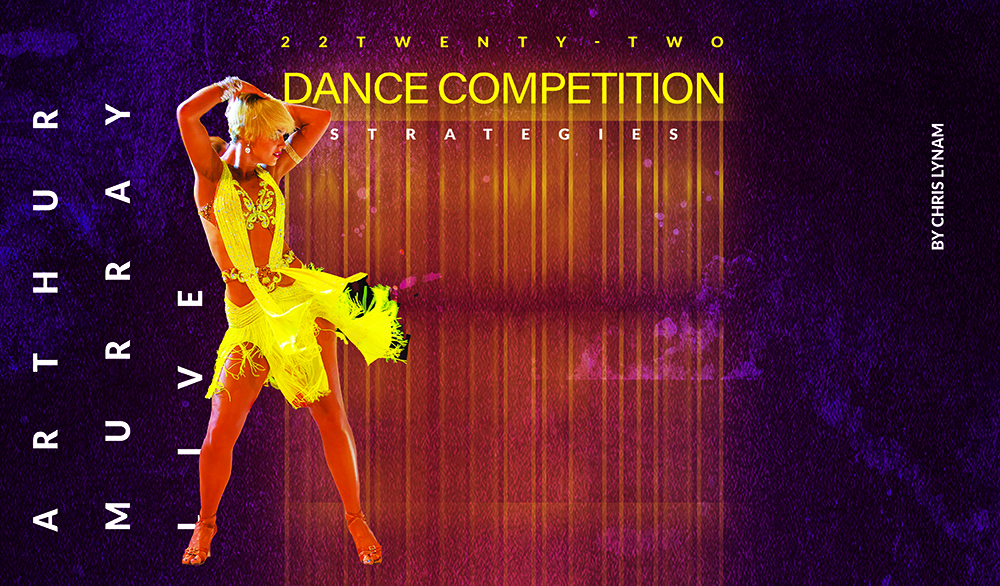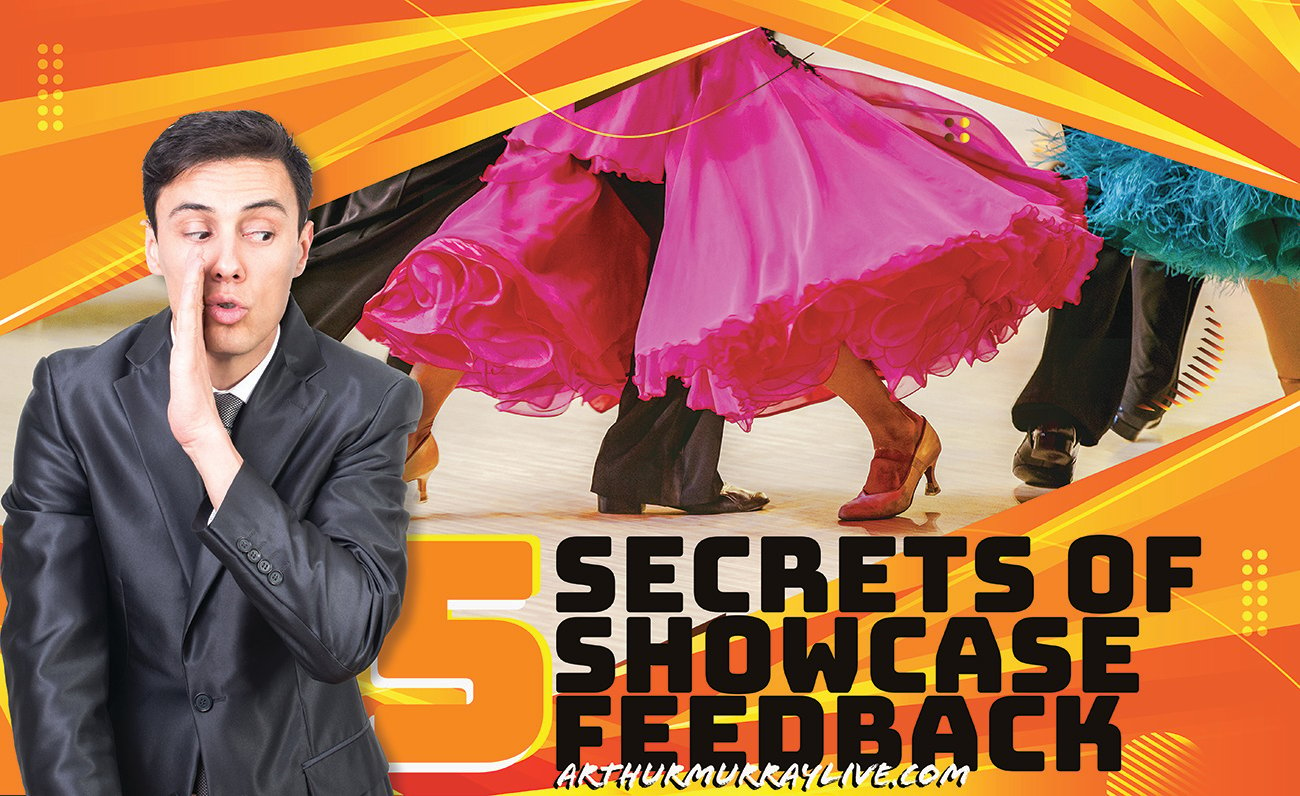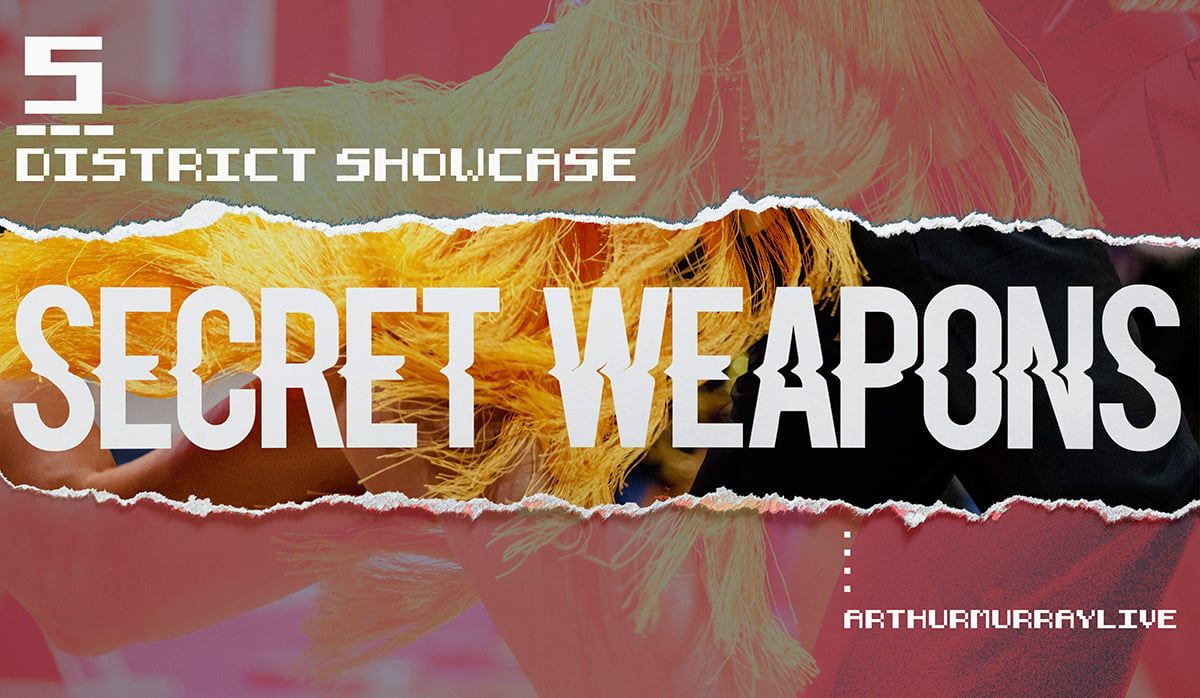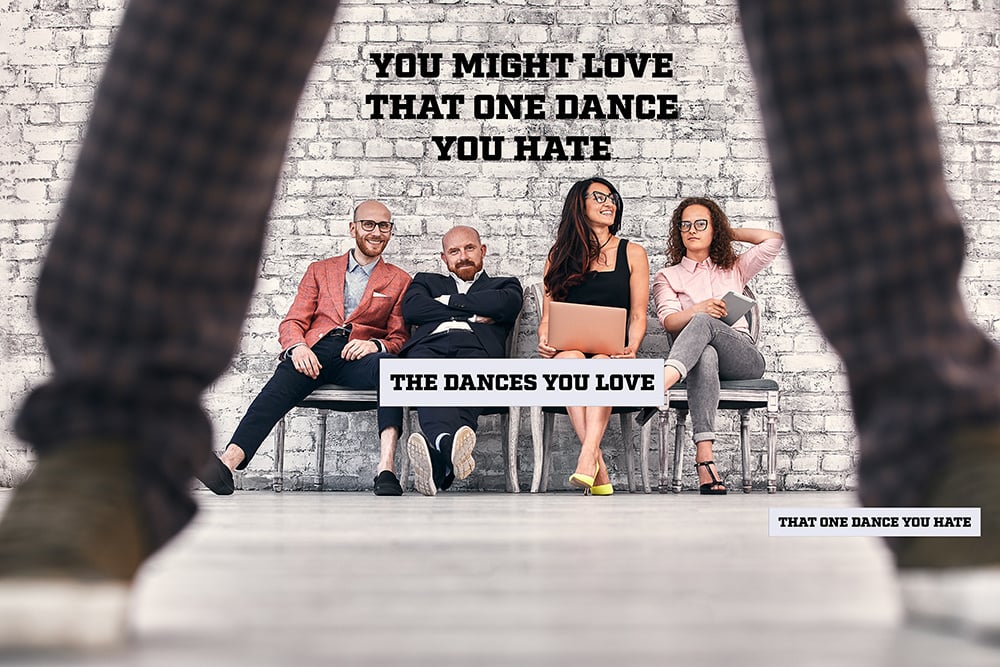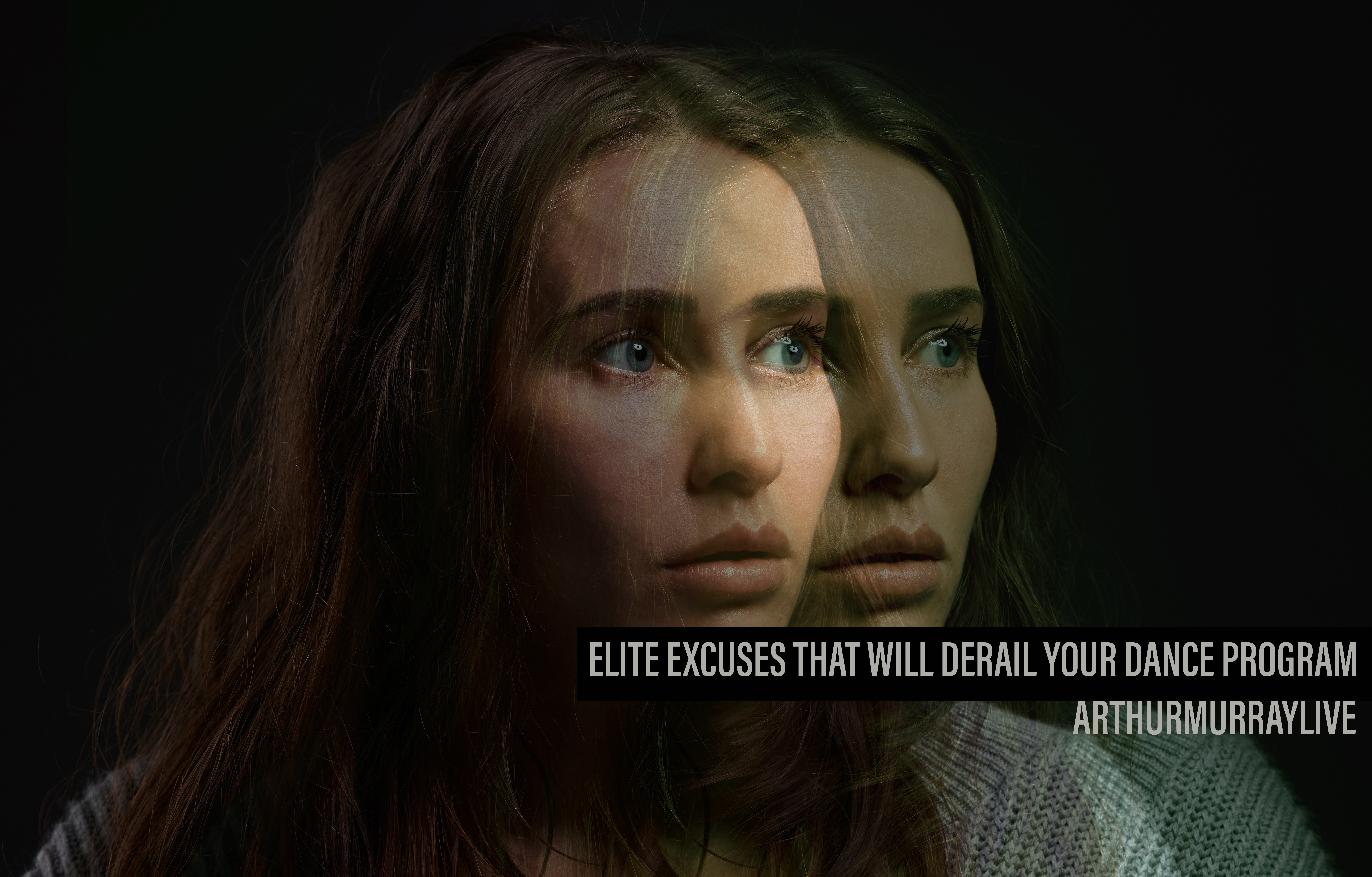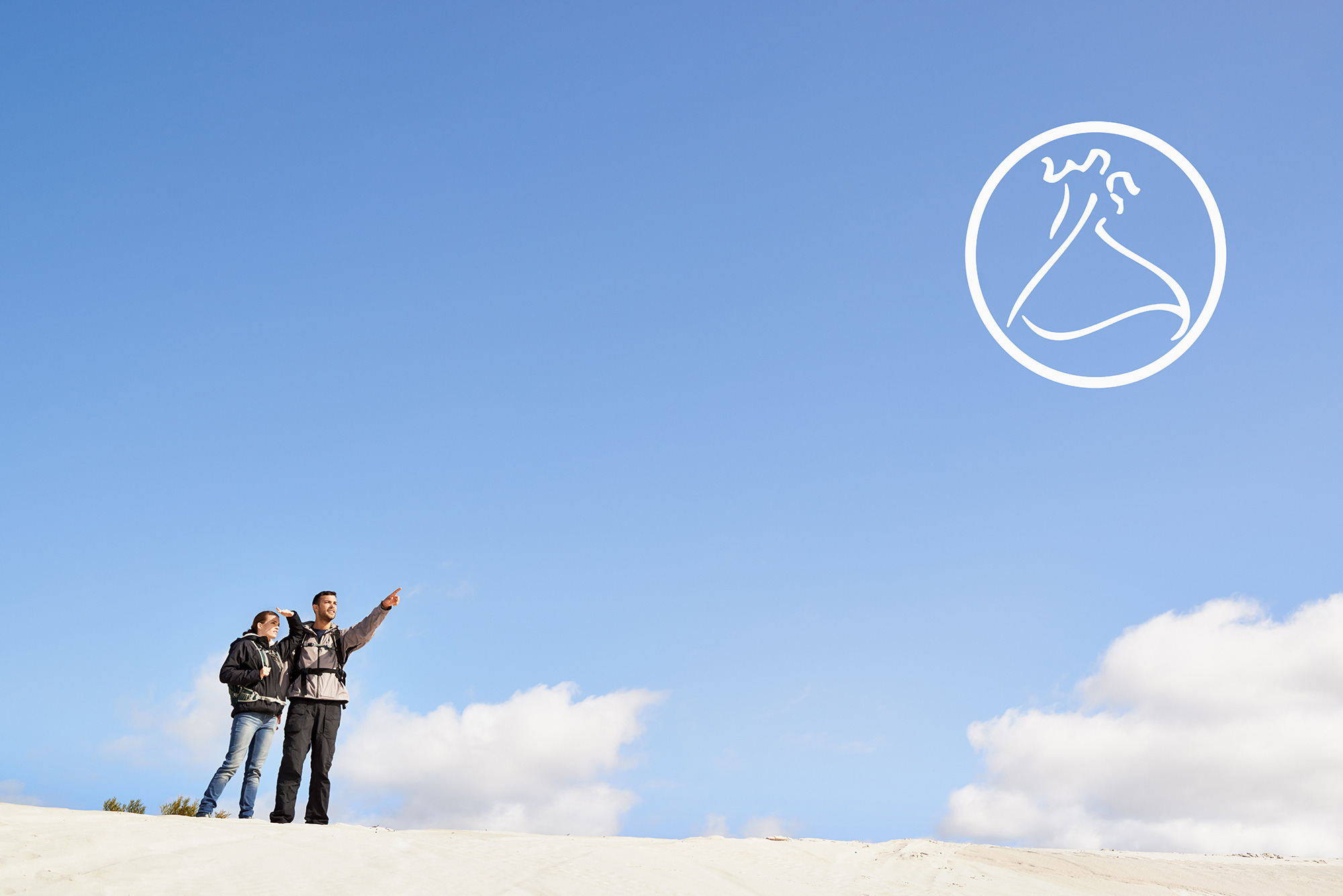22 Dance Competition Strategies
Congratulations! Whether you have decided to try out your first dance competition, or if this is your third one this year, this is a milestone worth celebrating. In the words of Obi-Wan Kenobi, "you've taken your first step into a larger world."
This article is designed to help give you tips on how to extract the most improvement from that decision. To be clear, this is a 22 step strategy to give you the best return on investment for a dance competition. You can use the entire list, or turn a single entry into your strategy.
Not only will a dance competition improve your dancing, it should also improve who you are as a student and competitor in the process.
Whether you're reading this the week before a competition, or six months in advance, the tips will be laid out based on your proximity to the event:
- 6 Months in Advance
- 3 Months in Advance
- One Month Out
- At the Competition
- After the Competition

6 Months in Advance
1. Don't Just "Plan" Early
There's an interesting divide when you think of planning something and committing to it. You can plan to get in shape, write your novel, or take dance lessons, but until you commit yourself to it, the vague planning stage is easy to wriggle free from.
The best first step for any big dance event is to commit early. You can do this by marking out your calendar, informing your teacher, and securing your deposit. Why? Because the moment you take a decisive action towards participating, the more decisive your teacher can be on your strategy for improvement.
2. Take Inventory
In case you missed it, this is a great time to look up How to Marie Kondo Your Dance Program. With this approach you can have a transparent look at what projects need the most attention and is the perfect way to make the most of your visits with dance consultants.
3. Set Some Layered Goals
Your Arthur Murray teachers do this every week. Instead of just sharing a goal, we look at three different types: Safe, Stretch, and Ultimate
A Safe Goal is your basic survival goal. What are some things that, no matter what, we know we have in our control to achieve? These can be things like "by the time we go to the competition, we should have at least one advanced pattern integrated into our open freestyles" or "have a short choreographed opening for six dances by the competition."
A Stretch Goal is something that is currently a touch out of reach, but can be attained with a little effort (a stretch). "Upgrade all of our associate level closed freestyles to full level by the competition" or "have 30 seconds of choreography finished by the competition in 8 dances."
An ultimate Goal is something that can go outside of your control or may take a longer timetable to reach. By stating these early, it gives a process that exceeds the current competition and turns any productive results into bonuses if achieved earlier. For example, "Have hip action show up in all rhythm dances on video" or "have 90 second open freestyles finished in 9 dances."
3 Months in Advance
4. Use Your Coaches Wisely
Every Arthur Murray consultant is like an expert tour guide for the competition you're going to be attending. It's important to utilize them to help you accelerate your goals (#3) and get a better handle on what they are typically looking for at an event of that caliber.
The article Use These 3 Dance Coaches is a great example of how to enlist the help of a consultant for things like choreography, technique, or finishing details. Just by committing early to the event (#1) and sharing that with the next dance coach, you'll be well on your way to receiving a far better return on investment with your competition.
5. Expand Your Net
While in the 3 Month window of your dance competition, this can easily zoom in your focus on only the highest priority dances and events that you care about. Unfortunately, this can leave out some great opportunities.
The sooner you can laugh, smile, and enjoy yourself on a competition floor, the sooner your dancing will start to resemble what it looks like in the studio. This can be done by adding some new or "low priority" dances to your roster.
This isn't a slight on any of these dance styles, but a newer dance has less criteria and can allow you to enjoy the music because of its simplicity compared to the others. Whether that comes in the form of Country Western dances, the Merengue, Hustle, or Polka - these dances are all fun, may not have as much depth for your dance program, and will therefore help you achieve a much more important goal of smiling, burning off nervous energy, and giving you a much needed break in the action.
6. Recalibrate Your Schedule
If you haven't done so already, with 3 months to go, it's probably a good time to start making adjustments to your schedule to ensure that your goals (#3) can be met.
If you think of your dance program like a fitness program, it's important that each area of your program - closed syllabus, open syllabus, and routines are all getting the appropriate attention. In addition, things like technique lessons, lead and follow lessons, and exploring some of the minor dances (#5) are a great way to keep your schedule just as fun as it is productive.
The goal is to do as much as possible now to lock in muscle memory, rather than waiting until the last minute and clogging up your mental memory.
One Month Out
7. Fun & Drills
With two weeks to go, you're in a window of time where there won't be a lot of changes to your choreography or last minute additions to your dance program.
Your goal during this time is to lock the physical details in while reducing the stress or worry in the process. This can be done by dancing competition simulations, working on finishing details, and breaking up any monotony with some of your fun dances (#5).
8. Find Your Key Words
There is a mental filing cabinet you've been filling up for each and every dance. One of the biggest things that causes that "deer in the headlights" look is when you're actively attempting to sift through those mental files at a dance event.
Instead, let's try something else. What would be the most important, descriptive word you could use to associate with a particular dance? Maybe is "glide" for the Foxtrot, or "Tell the story" for the Waltz. This helps the most important, keyword related, elements bubble to the top of your brain when you're at the event.
With two weeks out, this exercise may be more productive than anything rote memorization can help you do. It narrows the field of choices, and allows you to bypass the "remembering" and focus instead on execution.
9. Find the Milestones
This is an excellent opportunity to celebrate the milestones that you've achieved with organizing your projects (#2) along the way. The quote, "you measure what you treasure" is the perfect summary for why this step is vital.
The event itself isn't the process. The event itself is the culmination of the work you've done. There will be a lot going on at the event, so take the time now to celebrate the milestones and take inventory of the goals you set out to achieve.
10. Emergency Protocols
Every school, at every grade level, will have some type of drill to prepare the students for an emergency. This is the time to do the same for your dance competition.
Whether those are physical emergencies like "what do we do if someone bumps into us on the dance floor?" or goal related emergencies like "what do we do if we start to feel disappointed at the event?" Outlining your responses to these situations before the event is like conducting a fire drill before there's a fire.
Any performance or production in any industry will have something that doesn't go exactly according to plan. So why not plan for that? Doing so before the event levels up your strategy and adds one of the most important skills to your dance hobby: Resilience
At the Competition
11. Worry Reduction
If you've been following this process so far, there may be a lot of potential worry that has been averted. Weirdly enough, this can be a double edged sword.
On one hand, you're primed and ready for action. You're not taxing your brain and cramming in as many forgotten dance details at this stage. On the other hand, the hotel of worry in your brain now has a vacancy. And just like any hotel in the world, your first instinct will be to fill it.
This may come in the form of worrying about the hotel room, the schedule, the amount of time to change in between the events, or even your hair and makeup. This isn't suggesting that these things aren't relevant, but just like a woman preparing to go into labor, the goal is to reduce the amount of worry on your plate, focus on your most important job at hand, and let the professionals relieve those burdens from you.
12. Err on the Side of Communication
The last thing that anyone wants is for a concern to turn into a distraction for your dance competition experience. It's important that you make a pact with your teacher, before you start dancing, that you will err on the side of communication.
Any professional in your life that you've enlisted to help you improve in an area needs open channels of communication to help you reach your goals and demonstrate their ability to help. Whether it's out of sheer curiosity, a stubbed toe, or a moment of frustration - your teachers are equipped to handle those concerns and keep you focused on the right things.
13. Strength in Numbers
One of the biggest surprise benefits from attending a dance competition is the community. From the team you participate with, to the larger Arthur Murray family you meet when you get there, the support and encouragement is unmatched.
In order to feel the full benefit of that support, it's important to stay in close proximity with your team. Not only does this virtually guarantee that you won't miss any of your dances, but it also helps to dramatically reduce any feelings of frustration that can boil over to a much more negative situation if left alone.
14. The Double Benefit
Think of the last time you went to a sleepaway camp. How quickly were they able to take large groups of people and transition them from nervous and homesick to rowdy and ready for more?
One of the best methods we can employ at a dance competition is a page straight out of the sleepaway camp playbook: Screaming.
When you cheer for others on the dance floor, you're not only supporting the other dancers you know or appreciate, you're also releasing nervous energy in the process. It's a double benefit. Not to mention, in most cases, the people you cheered for will reciprocate the gesture when you're the one dancing.
15. The Goals, The Results, and a Steak Dinner
If you decided to pay for a steak dinner and the chef brought you a complimentary piece of Tiramisu, how would you feel? Whether you ate a bite or devoured the entire thing, you'd undoubtedly enjoy the gesture.
Now, in the same scenario, would you ever set out to pay for a steak dinner with the goal of getting a free dessert? Probably not. "I'm going to hand you my credit card for this bill provided that you give me a free dessert" is probably not in the spirit of free dessert giving by the management.
Considering all of this, think of your development as a dancer through the process of this competition as your steak dinner. You invested time, effort, and resources to achieve what you've achieved. The free dessert are the results. How you place, the marks you get, are outside of your control. If you approach them as an unexpected bonus, instead of an expectation; Your dance competition skills will improve both physically and emotionally.
16. Don't Forget Your Bookends
If you've taken the steps to assign keywords to your dances (#8) and layered goals (#3) then consider them both bookends between your dances.
"What's our keyword for this dance?" can be asked and answered as you're walking onto the dance floor. That's your first bookend.
"How did we do with our goals on that one?" will take inventory of the big picture vision for the event and for that dance. That's your second bookend.
We all have an inner critic. Leaving out these bookends is like posting a help wanted ad in your brain for critique. Don't allow that position to be filled by keeping these bookends consistent.
17. Hand Over the Keys
It's always best to go into any challenging situation with a strategy. Take, for instance, going to a bar with some friends. If you were the driver, but plan on drinking, the responsible thing to do is to hand your keys over to a designated driver.
You may even take it a step further by saying, "if I try to take these keys from you at any point tonight, you have my permission to leave without me."
This is "handing over the keys" and here's how that might go at a dance competition. If you understand what your normal system defaults are for handling a little pressure, you can share those "keys" with your teacher, and operating instructions for how to help if things get, well... pressurized.
"I tend to get really quiet when I'm stressed but I know that isn't going to help me. So you have my permission to bombard me with questions, get me up and dancing, anything to keep me from going into a funk."
18. Improvement Isn't Just a Feeling
Your feelings can have more rise and fall than a waltz. It's time to put this into perspective, there are facts out there that you're making progress that your feelings may want to ignore.
Think of feelings and facts like painting. Your feelings want to work in broad strokes, huge Jackson Pollock style splashes of paint. The facts will work with precision brushes. Facts can find the fine detail of a process.
Whether it's you, or your teacher, taking some time to zoom in on the facts of your progress will prevent you from zooming out of the ballroom with just your feelings.
19. Without an Asterisk
Your feelings (see #18) can stand in the way of a great thing. Namely, a compliment. However unworthy your feelings may lead you to believe you are, it's important to know that accepting a compliment should be done with the same grace as a Viennese Waltz.
A compliment is a face to face standing ovation. Receive it without apology or refusal. Smile, thank them, and remember that you are the image of good dancing to someone else, and a reflection of your teacher and studio.
After the Competition
20. Laugh a Little
Every dance competition is designed for rapid growth. The dancer you were when you arrived will have evolved by the time you are finished.
This should make it easy to find some early moments that you can share and laugh about. After all, the sooner you can laugh about an obstacle, the sooner you can learn from it.
Take a few minutes on your last night at dinner to share some learning moments. Dole out highlights and funny lowlights in equal quantity.
21. Chase the Burn
Imagine if your brand new fitness trainer encouraged you to stay home from the gym until you weren't sore anymore. People in fitness know that you have to chase the burn and work out even, and especially, when you're sore.
Dancing is no different. There may be some physical or mental fatigue after a dance competition. That is to be expected, but the last thing you want is to let the skills you developed for the event to atrophy.
Plan set of debrief lessons to follow up on what you learned at the event. Use this time to refine areas of your routines that may not have held up as originally expected. Everything will have more clarity the sooner you follow up after returning.
22. Load the Next Plan
You aren't a destination dancer. Sure, you may have just danced at a 5 star hotel at a world class resort, but destinations aren't your thing.
Your dance progress is a journey. A marvelous, challenging, life-changing journey. So plan accordingly. Line up your next dance competition, set up your next set of goals, and feel free to go back and re-read this article as needed.
Final Thought
This article was originally designed for 10 key points. But going step by step through the process kept revealing more and more essential tips. Many of these tips were once missing ingredients that caused a negative effect on a student's competition experience.
Hopefully, this article (and the 12 additional tips) can equip you, the reader, with an improved strategy both in mind and body. To add some facts where there would otherwise be feelings, and dial back the distractions so you can hone in on the magic.



